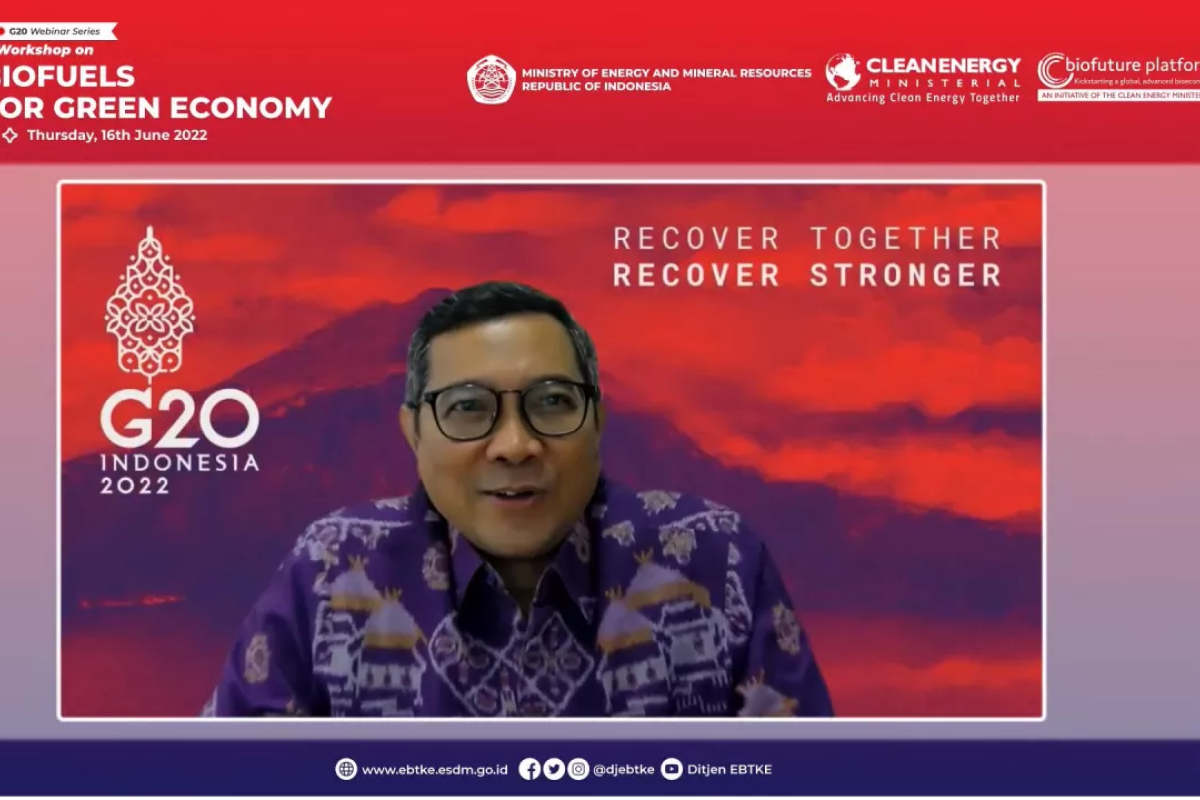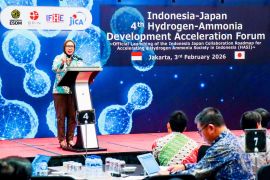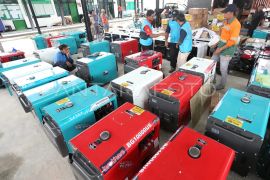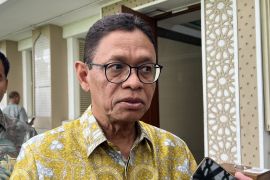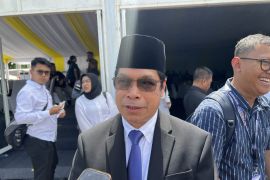"Speaking of green jobs, the biofuel industry is the second-largest renewable energy sector in terms of employment, behind solar energy. It is estimated that the biofuel industry employs around 2.4 million people globally, not including other related upstream and downstream sectors," expert staff for strategic planning at the ministry, Yudo Dwinanda Priaadi, said at a webinar themed “Biofuels for Green Economy,” held as part of the 2022 G20 Indonesia Presidency series, hosted by the ministry on Thursday.
Biofuels could also make a significant contribution to the achievement of the 2030 Sustainable Development Goals agenda and carbon neutrality, he added. The sustainable production and use of biofuels could also provide several socioeconomic benefits, he said in a statement delivered here on Thursday.
"Among other things (the benefits) are increasing the diversity and security of energy supply, increasing access to modern energy services, improving air quality, and encouraging sustainable economic development," he added.
Biofuels could boost productivity and support the green economy through large-scale development and investment, Priaadi pointed out.
"In Indonesia, the mandatory biodiesel program in 2021 has produced around 16.3 million kiloliters, an increase from 13.3 million kiloliters in 2020 during the COVID-19 pandemic. This figure in 2020 is even higher than 2019's 12 million kiloliters. I also hope that the massive scale of green economy development will also (be implemented in) other G20 countries," he said.
The national biofuel program will be strengthened by a green refinery program, whose pilot is on in Cilacap city, Central Java, he informed.
The first phase of the project will produce hydrotreated vegetable oil (HVO) or green diesel, a second-generation biofuel product from refined, bleached, and deodorized palm oil (RBDPO).
Related news: Indonesia saves $4.54 billion in foreign exchange by using biofuel
Biofuels can also help the G20 create a green economy and establish stronger international cooperation. Although biofuel sources are limited to certain countries, the downstream economic sector of biofuels and their derivatives is related to all G20 member countries.
"This will make international cooperation in the energy transition and green economy from biofuel have a more significant (contribution)," he said.
International cooperation and partnerships can expedite advanced technology development pathways for the biofuel industry, particularly in emerging markets and emerging economies.
"Moreover, international partnerships in the biofuel economy will promote the massive and sustainable use of biofuels in the transportation sector and other energy-related sectors due to the significance of biofuels and other bioenergy sectors for energy and the economy in the future," Priaadi said.
Related news: Biodiesel policy accelerating transition to clean energy: Minister
Translator: Kelik Dewanto, Mecca Yumna
Editor: Rahmad Nasution
Copyright © ANTARA 2022
